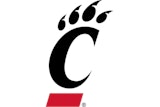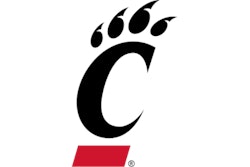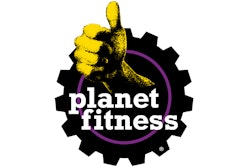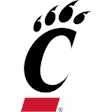![Contracted frontline security staff screen fans at Pittsburgh's Heinz Field. [Photo courtesy of Landmark Event Staffing]](https://img.athleticbusiness.com/files/base/abmedia/all/image/2016/02/ab.security116_feat.png?auto=format%2Ccompress&q=70&w=400)
Salim Toorabally had his suspicions. While working a turnstile at Stade de France on Nov. 13, Toorabally noticed an individual loitering near the gate. Then, that same individual began a hasty entrance on the heels of a fan heading for the stadium and a soccer exhibition between France and Germany. Toorabally instinctively slipped an arm in front of the suspicious-looking man, who explained that his cousin was supposed to bring a ticket to him but hadn't arrived yet. Toorabally denied him entrance, then waved others past his security post as he continued to keep an eye on the young, slender man in the dark jacket.
When selecting an event security provider, make sure you...✓ Verify how the company is going to recruit the required number of employees for your facility ✓ Determine whether the company completes background checks and drug tests on all employees at time of hire and regularly thereafter ✓ Have a clear understanding of the company's training program, including how many hours of training each employee will receive prior to assignment to your facility and the company's ability to track employee training compliance ✓ Contact the company's references to verify past performance |
Suspicions grew when the man made calls on his cell phone before attempting access at a different turnstile. Toorabally left his post to warn his counterpart at the other location, and the twice-denied man disappeared.
Less than an hour later, Toorabally heard an explosion. The man, 20-year-old Bilal Hadfi, had detonated the explosives that had been strapped to his body the whole time he had been engaged at the turnstiles by Toorabally, who later identified Hadfi's bloodied face in police photographs.
"I felt a shiver down my spine," Toorabally told London's Daily Mail. "I felt sick. It was so shocking. I told myself that if I had let him in, I would have been an accomplice in the murder of all those innocent people. Hundreds of people could have died."
Among those in attendance that day was French president Francois Hollande.
Hailed as a hero, Toorabally insists he's just an ordinary guy who was doing his job. His job is working for Maine Securite, a Paris-based private security provider. Though he had been working in security for 10 years, Toorabally had never worked a shift at Stade de France until Nov. 13, the day coordinated terrorist attacks in Paris rocked the entire world. As a policeman later told Toorabally, "Sir, it might just be that you have saved France."
TREND TOWARD OUTSOURCING
For sports venue managers everywhere, the events outside Stade de France at the very least served as proof that security can be outsourced without sacrificing gameday security diligence.
In the United States, most professional and collegiate sports venues rely on private security firms to fortify their front lines on gameday, invariably with the ample backing of law enforcement officials. According to Lou Marciani, director of the National Center for Spectator Sports Safety and Security, at least 65 percent of NCAA schools, for example, contract their gameday security, and he expects the outsourcing trend to continue. "It's moving in that direction," Marciani says.
It's a movement that has come under scrutiny. A 2013 USA Today investigation found that "stadiums and entertainment venues across the nation routinely rely on low-paid, part-time guards with spotty training and even criminal convictions." The paper found that roughly half of all states require no training of security guards whatsoever. Two states that regulate the industry — California and Florida — each require 40 hours of training and between them revoked the licenses of more than 500 guards in 2013 alone, mostly due to the discovery of criminal convictions.
A 47-year veteran of the security industry, Peter Kranske helped craft the NFL's post-9/11 training program that remains in place today. As president and COO of Landmark Event Staffing, in operation since 2006, he feels the industry is plenty regulated, to the point of being burdensome on providers and their individual employees. "The most difficult part of that for the crowd management/event security industry is that the regulations and requirements, especially the training, are dictated by the large industrial firms that provide a traditional night-watchman service," Kranske says. "Event security by its nature does not provide as many hours, and thus the regulatory costs are more of a burden on both the employers and employees. Also, we often have to provide our own training in addition to state requirements, as most states do not require crowd-management-specific training."
Determining who best to shoulder such burdens can drive outsourcing decisions. The University of Georgia in 2004 switched from a local security firm to one of the most prominent in the business — Contemporary Services Corporation, based in Northridge, Calif. "We were asking more and more out of our former provider in terms of training, staffing and overall numbers and decided to start over, with the thought of what type of service we wanted to provide at our football stadium," says assistant athletic director for event management Matt Brachowski. "It makes sense for us to outsource based on the number of people we are asking to handle these roles and the time and effort it takes to find the staff, train and schedule them. Also, this is the company's business — what they do every day — and they have the ability to pull in outside resources at the last minute if the situation demands."
CUSTOMER SERVICE FIRST
Finding the right people for the job can be a challenge. Whelan Event Services, formed in 2009 by St. Louis-based Whelan Security to meet the then 50-year-old company's growing event security market demand, takes advantage of an NCS4 background check program. "All of our employees get a background check at the time of hire, but the NCS4 program also background checks our employees every month for a period of three years," says Whelan Event Services vice president Jeff Spoerndle. "This allows Whelan and our clients the reassurance that the employees working in the venue are free of any criminal conviction."
Whelan Event Security personnel are not armed with firearms or Tasers, but instead serve as the "eyes and ears" of a facility as ticket-takers, ushers, metal detector operators, concourse rovers, field-level and seating-bowl security providers, and coaches' locker room escorts. "We're really the first line of defense," Spoerndle says. "We identify the problem, evaluate it and triage it. We have a documented warning system — we warn the fan and document it. And then if the fan commits the infraction again, it would escalate to a law-enforcement officer."
The actual duties of and expectations for outsourced security personnel have changed since 9/11, according to Kranske. "Certainly over the past 14 or 15 years the crowd management industry has evolved more from security focused to guest services focused and back to security focused with as strong a guest services emphasis as possible," he says. "The involvement of federal, state and local law enforcement with our personnel has grown much stronger. There are always new potential threats and challenges, and we have to keep up with those by being diligent and working with authorities to ensure the safety of the crowd. The challenge is to maintain the guest services aspect of the operations at the same time."
Part of that challenge is that even as security personnel are evaluating fan behavior, fans are evaluating the performance of security personnel. "Let's say there are customer complaints about outsourced personnel — it's not directly under the sports organization's control," says NCS4 associate director Stacey Hall. "A lot of these outsource companies may experience high turnover with their staff. A lot of time it is minimum wage and it's part-time and it's sporadic. So that's a concern. Then how do you ensure that they're trained properly? Are they just showing up the morning of, several hours before and given a quick rundown? 'Here's a map of the stadium. You're going to be here and if you have questions, send them here.' It's an ever-changing environment."
Whelan Event Services employs individuals whose full-time job is to recruit staff to fill the many thousands of positions required of its roster of professional and collegiate sports clients, who combined constitute more than 80 percent of the firm's business. "All of our applicants complete assessment testing to make sure we are hiring an individual who can meet the requirements of our customer," Spoerndle says. "We customize our assessment testing specifically to what our customers are looking for. Once an individual makes it through our hiring process, we partner with our clients and develop a training program that's specific to their site to ensure that we're meeting the needs not only of the facility that we're working in, but the team that's occupying the facility and also the league that they're associated with."
THE OUTSOURCING ADVANTAGE
Surveying a sea of 70,000 spectators is a daunting task, to be sure, and one most sports organizations can't accomplish with in-house staff or volunteers. Nor should they want to try. Even some large high school districts are finding value in outsourcing gameday security. "As with most any service, outsourcing allows the client to draw upon and partner with the expertise of people who provide event staff, event security and guest services on a regular basis," Kranske says. "The provider ideally has encountered most any event or situation that may arise. Its staff is trained and will have more repetitions and experience to draw from in servicing the client. Oftentimes a client also seeks a partner to share or assume the liability of an event. And often there are time and cost benefits, from not having to manage a staff in-house — and the attendant costs and burdens — to the decrease in liability insurance costs."
And the client might just get more than it bargained for. Upon hearing the detonation of Hadfi's belt rigged with "mother of Satan" explosives outside Stade de France, Toorabally rushed to the aid of injured bystanders, including fellow security personnel. He helped a man whose leg was bleeding badly from a shrapnel wound, then knelt and held the hands of two others until medical help arrived. "All they had done was come to work to be paid very little. They were just there to do their job, and this had happened to them. I had to help," Toorabally told the Daily Mail. "I suddenly saw myself lying where they were and imagined that I could be the next victim."
The Paris attacks made it painfully clear that nothing in terms of event security can be considered unimaginable. "It definitely concerns me when there's any type of attempted attack or breach of security at any sports stadium across the world, but thankfully their procedures prevented someone with a bomb strapped to his body from entering the stadium and doing more harm than he actually ended up doing," Hall says. "I think it's just another reminder that we can't be complacent, that sports events still are targets. We can't relax and think, 'It's not going to happen to us.' You just don't know, because the next wave of attacks could be a series of multiple attacks across multiple venues in this country."
This article originally appeared in the January/February 2016 issue of Athletic Business with the title "Outsourcing event security: challenges and advantages"





































